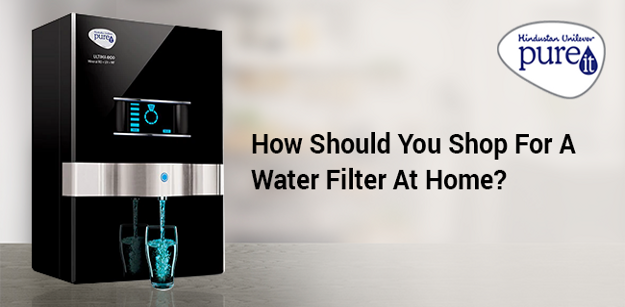With the growing population, industrialization, and environmental degradation, the Indian Government is finding it challenging to supply clean and safe drinking water to every household in the country. Indian citizens receive their water from tankers, borewells or municipal water, or even a combination of these sources, which is why the hardness quotient of the water supplied varies from household to household. With the dizzying range of purifiers in the market, it is not surprising that the consumer finds it very confusing to shop for a good water purifier that fits their specific needs. We’ll simplify the process for you.


So, have you heard of TDS?
What is TDS?
TDS stands for Total Dissolved Solids. Water is considered a universal solvent for all the right reasons and dissolves a number of organic and inorganic substances it comes in contact with. Primary sources for TDS in receiving waters are agricultural runoff and residential (urban) runoff, clay-rich mountain waters, leaching of soil contamination, and water pollution discharge from industrial or sewage treatment plants. The most common chemical constituents are calcium, sodium, potassium, magnesium, and their phosphates, nitrates, and chlorides. It is measured in ppm (parts per million) or mg/litre.
Before we explain the factors to consider while shopping for a water filter for your home, we’d like to briefly explain the most efficient filtration techniques in use.
Ultrafiltration (UF)
Ultrafiltration is a gravity-based filtration method where water is passed through a semi-permeable membrane with tiny pores (in the order of 0.01 microns) that is suitable to eliminate mud and other particulates. It is suitable when the total dissolved solids quotient of your water is below 200 ppm. It does not require electricity as water does not have to be applied with force.
Ultraviolet (UV) Filtration
Ultraviolet Filtration uses a UV source whose rays deactivate the genetic code of microorganisms like protozoa, bacteria, and viruses present in the water. As it does not eliminate the remnants of microbes or dissolved solids, it is suitable when the total dissolved solids quotient of your water is low.
Reverse Osmosis (RO) Filtration
Reverse Osmosis filters are based on the Reverse Osmosis technique where water is applied with force on a semi-permeable membrane with very minute pores (in the order of 0.0001 microns). It eliminates microbes, mud, particulates, the metallic residues of Arsenic, Lead, Aluminium, Mercury, and even dissolved organic and inorganic substances. It is the ideal filtration technique when the total dissolved solids quotient of your water is between 500 ppm and 2000 ppm.
Here is a list of things to bear in mind when shopping for the best water purifier for home:
1. The TDS in your water supply
You can get yourself a basic TDS meter to measure the TDS level. Generally, water supplied from borewells has a higher TDS than water supplied by the municipality of your areas. You must also check for its turbidity due to biological impurities or the presence of mud.
If the TDS is < 500 ppm and you detect the presence of mud and biological impurities in your water, you can go for UF or UF+UV water purifier. If the TDS is > 500 ppm and you detect the presence of mud and biological impurities, you should go for a RO+UV+UF water purifier.
2. The capacity of the water storage tank
Calculate the number of people the water purifier should be able to cater to. If you are living in a small family (2-3 members), you can opt for a water purifier with 7 litres capacity. Anything more than that and you may have to get yourself a water purifier with a greater water storage capacity. Also, determine beforehand if you need the purifier for drinking water purposes or to cater to the needs of the whole house.
3. Running water and electricity
Water purifiers like Reverse Osmosis alkaline water system require a consistent water supply with sufficient force. UV and RO purifiers are electricity-based and hence suitable for households with an almost uninterrupted supply of electricity. If the electricity supply is wavering, it is better to opt for a gravity-based purifier like UF.
4. Your budget
If your budget is limited or your TDS is around 500 ppm, a gravity-based water purifier would suffice. Gravity based purifiers run without electricity, are small in size and the price starts from around Rs.1099. The price of UV purifiers starts from Rs. 5499 and the price of RO purifiers starts from Rs. 7099. These are the estimates from a major online retail store.
5. Your maintenance costs
Your water purifier is only as efficient as its parts. If let’s say the semi-permeable membrane used in your purifier is clogged or not replaced in time, the quality of the water dispensed will suffer. So, when you budget for your water purifier, account for annual maintenance. The best brands in the industry offer Annual Maintenance Contracts to cover your service needs and we think you should go for them for the ultimate peace of mind.
6. Portability
If you need to move a lot from place to place, purchasing a bulky RO purifier could become cumbersome. So, as long as the locality to which you move has low TDS, you can get a portable gravity-based water purification system like a UF filter.



